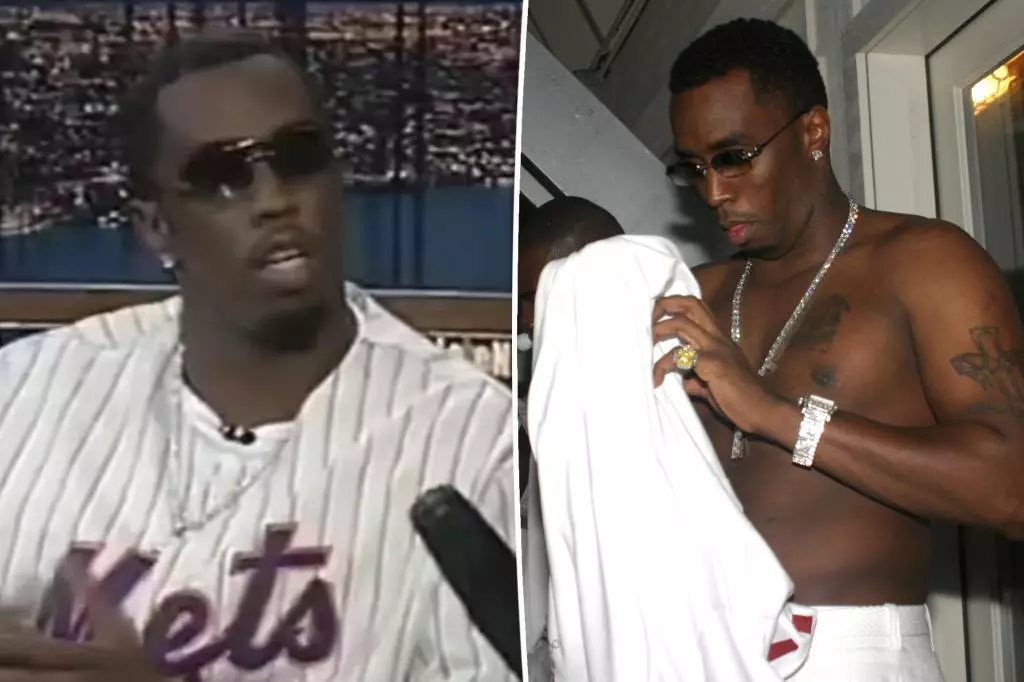In the ever-evolving landscape of celebrity culture, past words can often come back to haunt, especially when they reveal unsettling attitudes towards women. Recently, a 2002 interview featuring Sean “Diddy” Combs has resurfaced, sparking conversations about misogyny and the responsibilities of public figures. During his conversation with Conan O’Brien, Combs casually mentioned the need for “locks on doors” to keep women at parties, highlighting a troubling perspective on consent and companionship that seems both flippant and insensitive.
Combs’ comments, presented in a humorous context, are disturbing when put in light of his current legal troubles. The interview, which initially elicited laughter, now underscores a concerning trend in the entertainment industry—where male figures often exercise control over women in the guise of charm and charisma. His suggestion that one must provide “alcohols and water” to ensure the presence of women reflects a transactional viewpoint toward relationships, treating women as commodities to be retained rather than respecting their autonomy and choices.
The timing of the resurfaced interview coincides ominously with mounting legal challenges faced by Combs. Recently arrested on multiple charges, including racketeering and sex trafficking, the rapper-turned-mogul’s past is now playing a significant role in how these contemporary allegations are perceived. Prosecutors’ claims detail a long history of abuse and coercion, weaving a narrative that implicates Combs in a range of serious crimes—including creating a “criminal enterprise” supported by manipulation and intimidation.
These charges are not merely an assessment of one individual’s actions; they illustrate a broader issue of systemic abuse permeating the entertainment industry, where power dynamics foster environments of exploitation. The horrific descriptions of threats and coercion raise necessary questions about accountability in celebrity culture, especially when public figures engage in behavior that reinforces archaic notions of masculinity and dominance.
Social media plays an integral role in shaping public discourse surrounding figures like Combs. As clips of the interview circulate, reactions are polarized—some express outrage at the ease with which Combs discussed his troubling views, while others defend him as merely joking. This dichotomy reflects a vital tension in contemporary society: the friction between celebrity worship and the demand for ethical behavior from those in power.
Movements like #MeToo have elevated the conversation surrounding consent and accountability, and shortcomings of high-profile individuals are now faced with significant scrutiny. Combs’ attorney asserts that he is prepared to fight the charges and clear his name, but as public opinion shifts, the focus may increasingly veer toward the culture that enables such harmful behavior rather than merely the individual at its center.
The resurgence of Combs’ controversial remarks juxtaposed against serious allegations invites important reflection on the responsibilities of those in power. As society demands accountability from celebrities, it is crucial to examine not just the actions of individuals but the cultural paradigms that allow such behavior to flourish. For figures like Diddy, whose popularity has long been intertwined with charm and celebrity status, the challenge lies in reconciling past attitudes with present accountability, reminding us all that laughter should never be used as a shield for predatory behavior.

